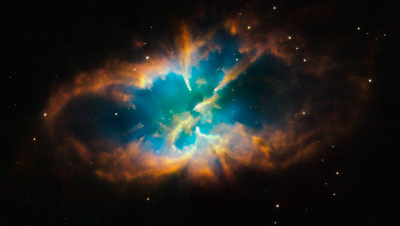Vatican Official Denies Existence of an Alien Jesus; Says Incarnation Was Unique Event

A Vatican official has recently stated that while alien civilizations might exist beyond our solar system, an alien Jesus Christ does not.
Jose Funes, director of the Vatican Observatory, holds a degree in theology along with a doctorate in astronomy.
In a recent interview with AFP News Agency, Funes explained that while he was open to the idea of alien life, including on some newly discovered planets, the incarnation of Jesus Christ was a unique event.
"The discovery of intelligent life does not mean there's another Jesus … the incarnation of the son of God is a unique event in the history of humanity, of the universe," said Funes to AFP.
Much debate has transpired regarding the possible existence of extraterrestrial lifeforms and the possible existence of civilizations beyond planet Earth.
Some believers in alien life have claimed that first contact with aliens would harm religion, as the new species would compromise the prominence for which mankind is placed theologically.
Over the years, Vatican leadership has been open to the possibility that alien life exists, denying that such life undermines Christianity.

In 2010, papal Astronomer Brother Guy Consolmagno told The Guardian that while he would be "delighted" if they found alien life, he doubted its existence.
"But the odds of us finding it, of it being intelligent and us being able to communicate with it — when you add them up it's probably not a practical question," said Consolmagno.
Consolmagno also said that he would baptize an alien "if they asked," explaining that any "entity, no matter how many tentacles it has, has a soul."
In 2014 Consolmagno once again stressed the possibility of aliens existing after becoming the president of the Vatican Observatory Foundation.
Regarding the potential impact on religion, Consolmagno explained that he did not believe such a discovery would disprove or prove religion one way or the other.
"Eventually you learn that the kinds of questions you ask as a scientist and the kinds of answers you get as a scientist are only the kinds of questions that lead to more questions," stated Consolmagno last year.
"The bigger questions, the religious questions, they're handled by science. The religious questions give you the framework that gives you the motivation to ask the science questions, gives you the confidence the science is going to work, and explains to you why I get this excitement at holding a rock from outer space."





















